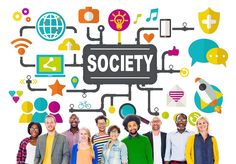The Impact of Social Media Algorithms on Society
In the digital age, social media has become an integral part of daily life for billions of people worldwide. Platforms like Facebook, Twitter, Instagram, and TikTok shape how we communicate, consume information, and perceive the world. At the heart of these platforms are sophisticated algorithms designed to maximize user engagement. While these algorithms have undoubtedly enhanced user experience and platform profitability, their broader impact on society warrants critical examination.
Personalized Content and Echo Chambers
One of the most significant effects of social media algorithms is the creation of highly personalized content feeds. By analyzing user behavior, these algorithms curate posts, videos, and advertisements that are likely to capture individual interest. While this personalization enhances user satisfaction by presenting relevant content, it also fosters echo chambers. In these echo chambers, users are predominantly exposed to information and opinions that align with their existing beliefs, reinforcing biases and reducing exposure to diverse perspectives.
The Spread of Misinformation
Social media algorithms prioritize content that generates high engagement, often favoring sensational and emotionally charged material. This propensity can lead to the rapid spread of misinformation and fake news. False information, once disseminated, can influence public opinion, sway elections, and even incite violence. The algorithms' preference for viral content, irrespective of its veracity, poses a significant challenge to informed public discourse and the integrity of democratic processes.
Mental Health Implications
The constant stream of curated content can have profound implications for mental health. Social media algorithms are designed to keep users engaged for as long as possible, often leading to excessive use. This persistent engagement can contribute to anxiety, depression, and feelings of inadequacy, as users compare their lives to the often idealized portrayals they see online. Furthermore, the algorithms can inadvertently promote harmful content, such as material that glorifies self-harm or eating disorders, exacerbating mental health issues.
Manipulation and Social Influence
Beyond individual impacts, social media algorithms have been used to manipulate public opinion and behavior on a large scale. Political campaigns, interest groups, and even state actors have harnessed these algorithms to target specific demographics with tailored messaging. This micro-targeting can influence voter behavior, amplify political polarization, and undermine the democratic process. The Cambridge Analytica scandal is a notable example, where data harvested from Facebook was used to influence political outcomes in several countries.
The Commercialization of Attention
Social media platforms are businesses driven by advertising revenue. Algorithms are optimized to maximize user engagement, thereby increasing ad impressions and profits. This commercialization of attention raises ethical concerns about the commodification of user data and privacy. Users often unwittingly trade their personal information for access to these platforms, with algorithms constantly monitoring and analyzing their behavior to serve targeted ads. The lack of transparency around data collection and usage further exacerbates these concerns.
Mitigating the Negative Impacts
Addressing the adverse effects of social media algorithms requires a multi-faceted approach. Regulatory frameworks need to be established to ensure transparency and accountability in algorithmic design and data usage. Social media companies must prioritize ethical considerations in their algorithmic development, incorporating safeguards against the spread of misinformation and the exacerbation of mental health issues. Additionally, promoting digital literacy among users can empower individuals to critically evaluate the content they encounter and recognize algorithmic biases.
In conclusion, while social media algorithms have revolutionized the way we connect and interact, their impact on society is profound and complex. The challenge lies in harnessing their potential to enhance human connection and information dissemination while mitigating the negative consequences that threaten societal well-being and democratic integrity. By fostering a more ethical and transparent digital ecosystem, we can hope to balance the benefits of algorithmic personalization with the broader interests of society.
.jpeg)


No comments:
Post a Comment